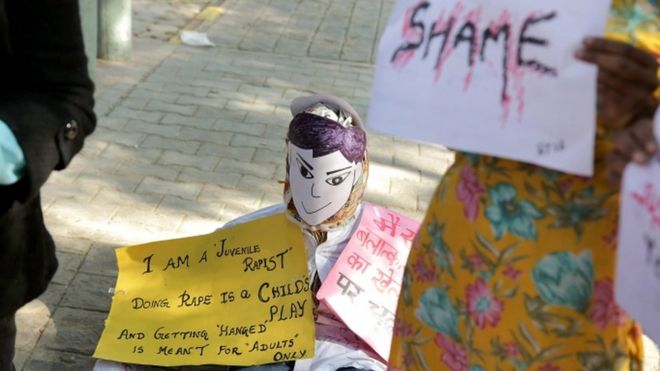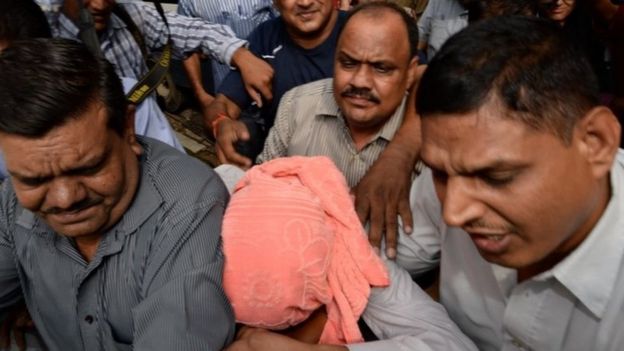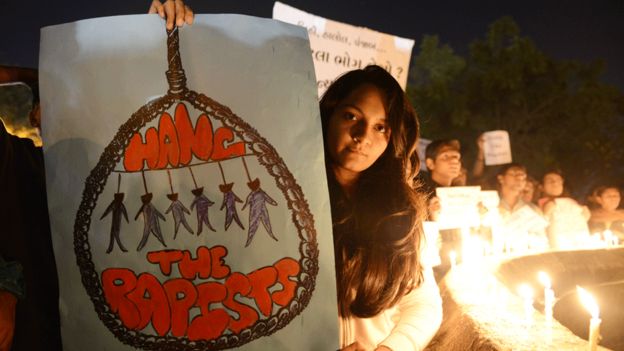
The case has angered many in India
The youngest convict in the notorious 2012 Delhi gang rape case has been released from a correctional centre, his lawyer has told the BBC.
Legal challenges and protests from the victim’s parents failed to prevent the release.
The rapist, who cannot be named as he was a minor at the time of the crime, was sentenced to three years in a reform facility in August 2013.
The rape and the subsequent death of the woman caused global outrage.
Although the convict is now an adult, he was tried as a juvenile and has served the maximum sentence allowed.
He has now been handed over to a charity, where he will remain because of fears over his safety.

Legal challenges were mounted to keep the convict in jail
Supreme Court
The BBC’s Sanjoy Majumder in Delhi says the release has been opposed by many people, including the parents of the victim, who were prevented by police from carrying out a protest rally in central Delhi earlier on Sunday.
The convict’s identity is being changed and no record of his crime will remain in the public domain, a move that has caused more outrage among many in India, our correspondent says.
A legal challenge by politician Subramanian Swamy to stop the release failed.
A court ruled on the case on Friday, saying: “We agree it is a serious issue. But after 20 December, the juvenile cannot be kept at a special home per law.”
Late on Saturday, Swati Maliwal, the head of Delhi Commission of Women, filed a petition to the Supreme Court trying to prevent the release.
It will hear the case on Monday, but the release went ahead anyway.
Our correspondent says the laws dealing with sex crimes in India have been strengthened since this case began, but many believe this has not been enough to prevent attacks against women.
Case timeline

16 December 2012: A 23-year-old physiotherapy student is gang-raped by six men on a bus in Delhi, her male friend is beaten up and the pair are thrown out after the brutal assault
17 December: Key accused Ram Singh, the bus driver, is arrested. Over the next few days, his brother Mukesh Singh, gym instructor Vinay Sharma, fruit seller Pawan Gupta, a helper on the bus Akshay Thakur, and the 17-year-old juvenile, who cannot be named, are arrested.
29 December: The victim dies in hospital in Singapore from injuries sustained during the assault; body flown back to Delhi
30 December: Cremated in Delhi under tight police security
11 March 2013: Ram Singh dies in Tihar jail; police say he hanged himself, but defence lawyers and his family allege he was murdered
31 August: The juvenile is found guilty and sentenced to three years in a reform facility
13 September: The four adult defendants are convicted and given the death penalty by the trial court
March – June: The convicts appeal in the Supreme Court and the death sentences are put on hold until the court takes a decision
20 December: Youngest convict released from correctional centre after serving maximum sentence allowed
BBC
 Q FM Africa's Modern Radio
Q FM Africa's Modern Radio